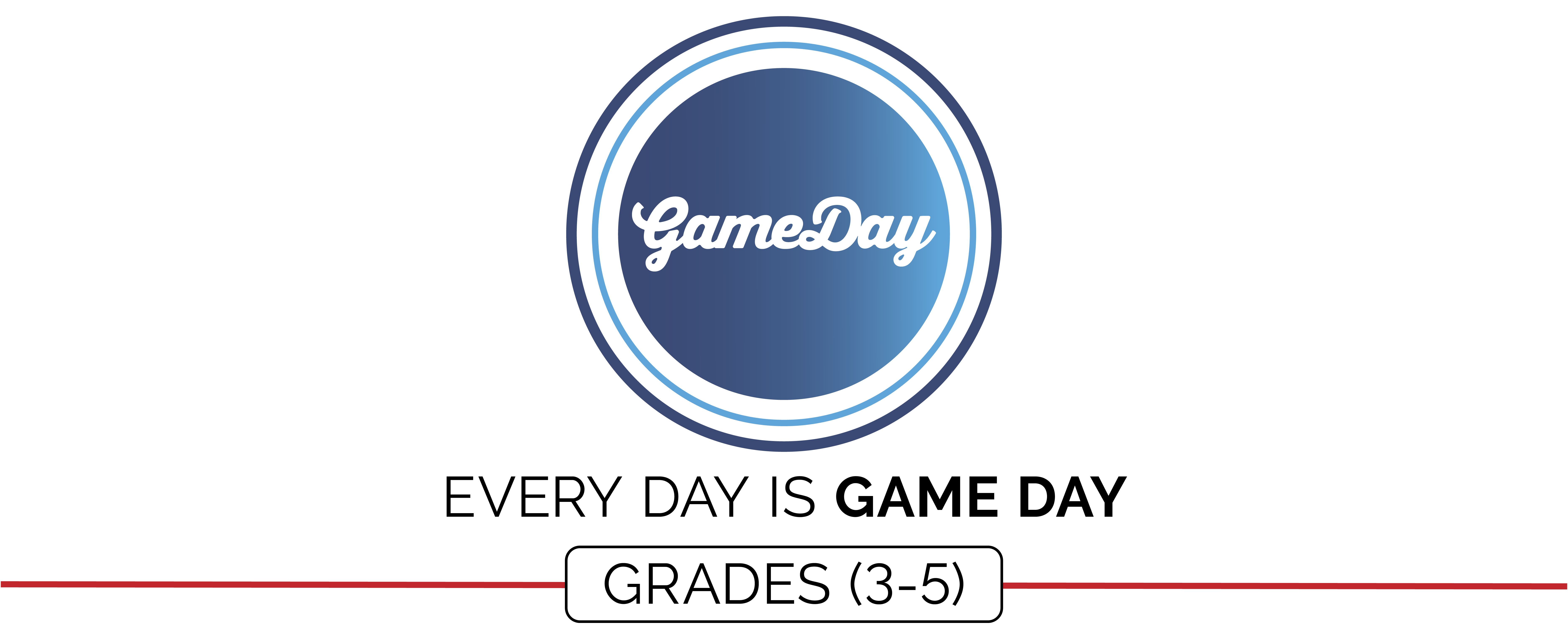Created by: Aaron Hart, Nichole Wilder, Mark Friedrich, Chris Walker
Special Contributions by: Eliza Kuhn, Andrea Hart
Welcome to OPEN’s 6-day journey to becoming a Game Day Champion! A Game Day mindset means waking up each day ready to tackle challenges with excitement, bounce back from setbacks, and make a positive difference in the world.
Every day is game day in a physical education class, and this module combines some of your OPEN favorites with some new activities that will surely become your new favorites! Physical education becomes a board game where the activities for each of the 6 days are selected by students from the Winning Wellness game cards. The Winning Wellness game cards focus on activities related to physical health, mental health, or community connections.
The activities within this module develop and reinforce responsible behaviors in a fun and engaging environment where all students can feel successful. This can allow all students to also participate in social engagement and building connections with their classmates that can extend beyond physical education.
Module Documents
Complete Module Packet:
Module Overview:
Required Materials:
All Module Activities:
Winning Wellness Game Cards:
Sample Lesson Plan:
Academic Language Cards:
Game Day Teacher Instructions:
Game Day Color Card:
Mindful Minute:
Universal Design Adaptations:
Activity Plans
Toss 3:
Switch:
Serves Up:
Upside Down:
Capture the Corner:
Over There:
Are You Feeling It?:
Slap 21:
Leaning Tower:
Treasure Hunt:
Cone Catcher:
Chariot Race:
Assessments
Academic Language Quiz:
Holistic Performance Rubric:
Journal
Every Day is Game Day Journal:
Teacher Reflection
Self-Evaluation/Reflection Guide:
Can’t see the file links? Register for FREE today to access all of the modules. SIGN UP HERE
OPEN Priority Outcomes:
Etiquette:
(3) Recognizes the role of rules and etiquette in physical activity with peers.
(4) Exhibits etiquette and adherence to rules in a variety of physical activities.
(5) Critiques the etiquette involved in rules of various game activities.
Manipulative Skills:
(3) Demonstrates manipulative skills using mature patterns for accuracy and control.
(4) Combines locomotor and manipulative skills using mature patterns for accuracy and control in static and dynamic environments.
(5) Executes a variety of manipulative skills with control and accuracy in small-sided games.
Movement Concepts:
(3) Recognizes open and closed spaces in a variety of movement contexts.
(4) Combines movement concepts with skills in a variety of small-sided practice tasks.
(5) Analyzes movement situations and applies movement concepts in small-sided games/practice tasks.
Personal Challenge:
(3) Discusses the challenge that comes from learning new physical activities.
(4) Rates the enjoyment of participating in challenging and mastered physical activities.
(5) Expresses the enjoyment and challenge of participating in a favorite physical activity.
Personal Health:
(3) Discusses the relationship between physical activity and good health.
(4) Examines the health benefits of available physical activity options.
(5) Compares the health benefits of available physical activity options.
Personal Responsibility & Safety:
(3) Works independently and safely in physical activity settings.
(4) Exhibits responsible behavior in independent group situations.
(5) Engages in physical activity with responsible interpersonal behavior (e.g., peer to peer, student to teacher).
Social Interaction:
(3) Describes the positive social interactions that come when engaged with others in physical activity.
(4) Describes and compares positive social interactions when engaged in partner, small group, and large group physical activities.
(5) Describes the social benefits gained from participating in physical activity.
Working With Others:
(3) Works cooperatively with others.
(4) Accepts “players” of all skill levels into the physical activity.
(5) Accepts, recognizes, and actively involves others with both higher and lower skill abilities into physical activities and group projects.

